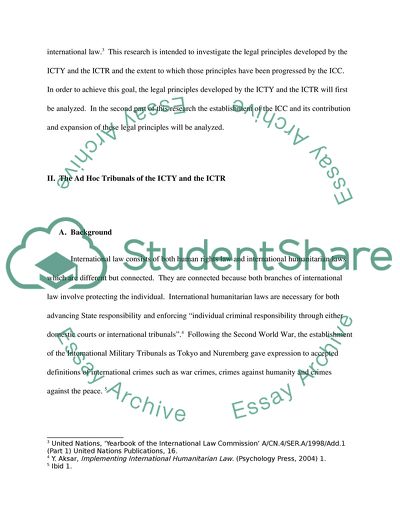Cite this document
(The International Criminal Court and the Legal Principles Developed by Assignment, n.d.)
The International Criminal Court and the Legal Principles Developed by Assignment. Retrieved from https://studentshare.org/law/1743493-assess-the-extent-to-which-the-international-criminal-court-has-progressed-the-legal-principles-developed-at-the-ad-hoc-tribunals-for-the-former-yugoslavia-and-rwanda
The International Criminal Court and the Legal Principles Developed by Assignment. Retrieved from https://studentshare.org/law/1743493-assess-the-extent-to-which-the-international-criminal-court-has-progressed-the-legal-principles-developed-at-the-ad-hoc-tribunals-for-the-former-yugoslavia-and-rwanda
(The International Criminal Court and the Legal Principles Developed by Assignment)
The International Criminal Court and the Legal Principles Developed by Assignment. https://studentshare.org/law/1743493-assess-the-extent-to-which-the-international-criminal-court-has-progressed-the-legal-principles-developed-at-the-ad-hoc-tribunals-for-the-former-yugoslavia-and-rwanda.
The International Criminal Court and the Legal Principles Developed by Assignment. https://studentshare.org/law/1743493-assess-the-extent-to-which-the-international-criminal-court-has-progressed-the-legal-principles-developed-at-the-ad-hoc-tribunals-for-the-former-yugoslavia-and-rwanda.
“The International Criminal Court and the Legal Principles Developed by Assignment”, n.d. https://studentshare.org/law/1743493-assess-the-extent-to-which-the-international-criminal-court-has-progressed-the-legal-principles-developed-at-the-ad-hoc-tribunals-for-the-former-yugoslavia-and-rwanda.


